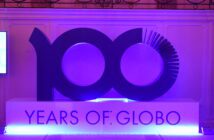US drama Homeland has won scores of awards and a legion of fans. What many of the latter may not realise is that it was based on an Israeli drama called Hatufim (Prisoners of War in its English title).
That show’s creator, writer and director Gideon Raff joined Fox 21 president Bert Salke on-stage at MIPTV this afternoon for a Media Mastermind session digging into the original show’s birth in Israel, its adaptation for the US, and its subsequent success around the world.
Raff and Salke were interviewed on-stage by Ran Tellem, VP of programming at Keshet Broadcasting, and also an executive producer on Homeland (as was Raff).
« What we’re looking for is storytellers with a vision, » said Salke. « I don’t think you start by saying we want something that’s going to be big and huge… You start with a good story. »
Raff said that he wasn’t thinking about how the audience would receive Prisoner of War when he first started writing it, thinking more about a story that would stay genuine to its characters. That’s continued, despite Homeland’s international success. « You can’t think about these things, it’s paralysing. You have to just focus on the creation. »
Salke was asked if people were frightened by the idea of Homeland when it was first in the run to be commissioned, given its subject matter.
« For us, it’s such a hot-button topic, it gets a lot of attention. It just so transpired that the capture of Osama bin Laden was when we were in the middle of production of the first season, » he said, suggesting that the event made a lot of people think about terrorism and other issues touched on in the series.
« When we are looking at the shows that frankly are most important to us, they tend to be about important things, » he said. « If it’s not controversial, I’m infinitely less interested… When something is as immediate as what’s going on between the Middle East and the US… it’s all so topical, and so much about what our daily lives are about at this point, it just catches fire. »
Raff added that the idea of a show where viewers don’t know if they can trust the main character was very timely, given this context. And Tellem noted that there was just as sensitive a background to Hatufim in Israel, because it dealt with prisoners of war, and at the time there were three Israeli prisoners of war in the news.
« I was shocked that nobody ever dealt with this in prime-time in a drama or in a movie, » he said, while admitting that some documentaries had grappled with the topic. « They all dealt with captivity, the trauma. Nobody dealt with what happens to these people from the day they came back. »
He added that when it became known that he was working on a drama about prisoners of war, there was a certain amount of criticism, and suggestions that he was looking to make money out of such a sensitive subject. Yet other emotional reactions were different.
« Our actors in the beginning, when the show started airing, our actors could not walk in the street without somebody hugging them, » he said. « It’s pretty amazing… The audience took this very personally, the show. »
Salke talked about the creative process of creating Homeland out of Hatufim. Homeland is even more of a thriller, with the emphasis more on terrorism than prisoners of war. The adaptation « made sense », he thinks.
« Hatufim is more popular than Homeland could ever be in Israel, and Homeland is more popular than Hatufim ever could be in the United States. And that’s the way it should be, » said Salke, who went on to talk about what shows like Homeland mean for television more generally.
« There is a reason why television is on some level sort of overtaking the movie business right now, and it’s because you get to live in the depth of these characters, » said Salke. « We live with these characters, these controversial screwed-up characters and a depth that has become what the best television does. And I just think you’re going to see it going further, and further, and further. »
These characters are often ambiguous too: not identifiably ‘good’ or ‘bad’ for much of the time, or moving between the two. « That taps into the zeitgeist too, » said Raff. « That moral ambiguity is something we’ve been dealing with in society, I think, and that’s why you’re seeing it [in TV]. »
« Frankly it all goes back to The Sopranos, » chuckled Salke.
Raff talked about his love of thrillers and emotional dramas, and the way Hatufim sits in between them. « Homeland I think is brilliant, but it’s more of a straight thriller. When you see Hatufim, the audience have to commit to sit once a week in front of the television and cry, » he said.
« The audience sits riveted in front of the screens, and they can’t wait for the next week or the next download to see the next episode, but there’s a different emotional commitment to the show. »
How about the future for Homeland and Hatufim? What effect have they had on writing, drama, television and adaptations in general?
« There is something going on in television right now, specifically as far as I’m concerned in cable television right now, where there’s just no limits, » said Salke. « People that used to make movies of a certain ilk are now looking to make them in television… It’s set this bar up here. »
He continued: « I don’t know where it ends… Television’s going to conform to those kinds of shows. Do I think Homeland is a part of that? Yes I do… The future is bold, I think that cable programming in the US is going to affect network programing in everything from how many episodes they make, subject matter and actors that they use. »
Raff added that « people are getting used to watching television in a different way », with people binge-viewing Homeland, for example. The thriller element is reducing people’s patience for waiting for the next episode. And that’s happening around the world too: people who love Homeland are seeking out Hatufim on digital services like Netflix.




